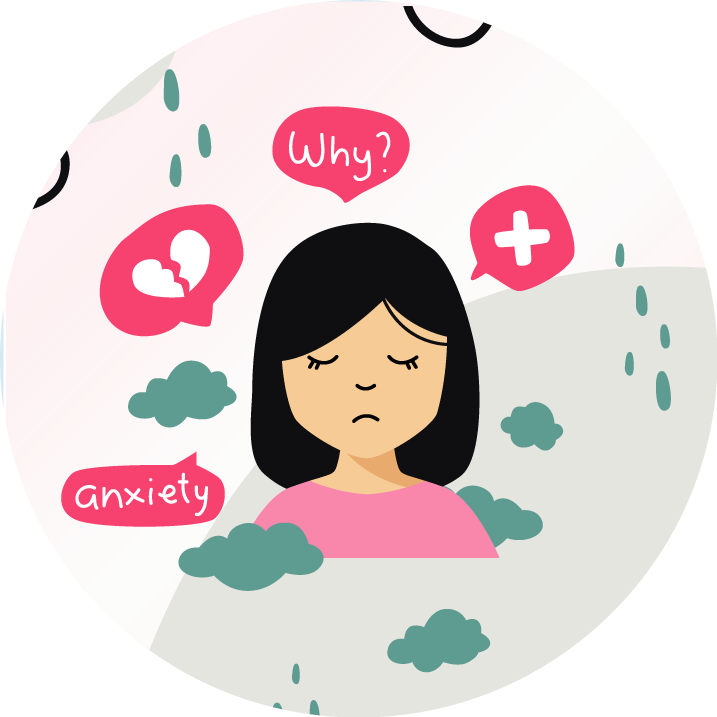Appreciating Socio?emotional Needs of Adolescents
.svg)
Appreciating Socio?emotional Needs of Adolescents
July 29 2025 TalktoAngel 0 comments 181 Views
Adolescence (roughly ages 13–18) is a pivotal developmental stage marked by rapid physiological changes, evolving peer dynamics, and the search for identity. Amid these transformations, socio?emotional well-being becomes a cornerstone for healthy growth, academic success, and long-term resilience.
1. Foundations of Socio?emotional Development
During adolescence, self-awareness and self-concept become increasingly complex. As Erikson framed it, young people move from a phase of exploration to forming committed identities — ‘identity achievement’—which supports higher self-esteem and autonomy. Equally vital is emotion regulation: adolescents learn to modulate emotional reactivity, stabilize mood swings, and navigate social stress, which reduces internalizing problems such as anxiety.
2. Peer Relationships: The Heart of Adolescent Social Life
Peers grow in influence as adolescents spend more unsupervised time with friends. High-quality friendships offer emotional support, intimacy, and belonging—factors linked to better stress responses and mental health, including reduced anxiety and depression. Interactions at school, such as reciprocal friendships, not only support socio?emotional needs but also lead to improved academic engagement.
3. The Role of School and Belonging
The school environment is critical for socio?emotional growth. A strong sense of school belonging—feeling accepted, respected, and included—supports well-being, identity formation, and academic performance. Research demonstrates that school-based social and emotional learning (SEL) programs significantly improve interpersonal skills, emotional resilience, conduct, and scholastic performance. Comprehensive, multi?year SEL initiatives backed by community and evidence consistently yield the best outcomes.
4. Emotional Intelligence and Personal Competence
Self-awareness, self-management, social awareness, relational skills, and decision-making are examples of socio-emotional competencies, sometimes referred to as soft skills. These competencies are assets that foster psychosocial adjustment, especially in socially vulnerable youth. Emotional intelligence supports identity formation and effective social engagement, with transformative SEL approaches addressing issues of power, privilege, and equity.
5. Support Networks: Family, Peers, Staff
Adolescents thrive when supported by diverse mentors and peers. A U.S. health survey found that around 60% of teens consistently reported receiving needed emotional support, but those from low-income families or minority backgrounds received less. In residential care contexts, support from different figures (friends, staff, etc.) notably improves quality of life and self-esteem. Peer support in particular enhances school attendance, engagement, and mental health, even buffering pandemic-related anxiety.
6. Addressing Trauma and Vulnerabilities
Adolescents exposed to trauma, violence, or neglect are prone to socio?emotional challenges, such as diminished school performance and difficulties in emotion regulation. Trauma?informed educational practices—supportive pedagogy, consistent routines, emotion-regulation tools, and tiered intervention systems—are vital for creating safe, healing learning spaces.
7. Extracurricular Activities and Skill Development
Participation in extracurriculars—especially arts or discussion-based clubs—boosts socio?emotional competencies. A study using the Social Emotional Competence Questionnaire (SECQ) found that school-based artistic and musical programs significantly enhance social awareness, while structured physical activity shows mixed effects. These activities not only provide social skill practice but also foster a sense of belonging and personal growth.
8. Digital Tools and Innovation
Technology offers innovative ways to support adolescent socio?emotional health. In India, culture?aligned mental health chatbots offer anonymity and agency, valued by teens facing stigma and limited support. In Europe, augmented?reality games like LINA (for 10–12-year-olds) create supportive peer environments that enhance connection and class cohesion. These promising approaches underscore new avenues for SCALE interventions.
Recommendations for Supporting Adolescents
Embed SEL in schools using evidence-based, transformative curricula that teach emotion regulation, empathy, and equity awareness.
- Prioritize belonging by fostering inclusive cultures, peer mentoring, and diversity-respecting infrastructures.
- Strengthen social support by equipping families, staff, and counsellors to provide stable emotional scaffolding.
- Offer varied extracurriculars across arts, debate, sports, with emphasis on creative and reflective environments.
- Implement trauma-aware systems, including mindfulness breaks, classroom safety signals, and tiered mental health access.
- Leverage culturally-informed tech, such as anonymous chatbots and cooperative digital experiences, to supplement human support.
Conclusion
Socio-emotional needs—rooted in identity, emotional balance, healthy relationships, and safe environments—are as essential as academic learning in adolescence. Robust school-based Social and Emotional Learning (SEL) programs, strong support networks, trauma-informed practices, extracurricular engagement, and culturally-sensitive digital tools play a pivotal role in helping adolescents navigate life’s complexities with resilience and purpose. Online counselling from TalktoAngel offers accessible, confidential support for teens, connecting them with the top psychologists in India who specialize in adolescent mental health. These services empower young individuals to process emotions, build healthy self-esteem, and improve peer relationships. As research across contexts and cultures affirms, investing in the socio-emotional domain not only nurtures healthier, more confident individuals but also contributes to building stronger, compassionate, and more empathetic societies.
Contributed By: Dr. (Prof.) R. K. Suri, Clinical Psychologist and Life Coach, &. Ms. Chanchal Agarwal, Counselling Psychologist.
References
- Anticich, Barrett et?al. on FRIENDS resilience programs ([en.wikipedia.org][16]).
- Meta-analysis on SEL programs by Greenberg et?al.
- Social-emotional competence & extracurriculars (SECQ) study.
- Friendship-quality research & psychological resilience ([en.wikipedia.org][2]).
- School belonging: Goodenow & Grady ([en.wikipedia.org][4]).
- Trauma-informed schooling model.
- Vulnerable youth & peer support.
- https://www.talktoangel.com/blog/ways-to-improve-adolescent-mental-health-in-schools
- https://www.talktoangel.com/blog/adolescent-sleep-issues
- https://www.talktoangel.com/blog/body-image-challenges-during-adolescence
Leave a Comment:
Related Post
Categories
Related Quote

“If I wait for someone else to validate my existence, it will mean that I’m shortchanging myself.” - Zanele Muholi

“Anxiety is a thin stream of fear trickling through the mind. If encouraged, it cuts a channel into which all other thoughts are drained.” - Arthur Somers Roche

"It is okay to have depression, it is okay to have anxiety and it is okay to have an adjustment disorder. We need to improve the conversation. We all have mental health in the same way we all have physical health." - Prince Harry

“You say you’re ‘depressed’ – all I see is resilience. You are allowed to feel messed up and inside out. It doesn’t mean you’re defective – it just means you’re human.” - David Mitchell, Cloud Atlas

“Stress is an ignorant state. It believes that everything is an emergency. Nothing is that important.” - Natalie Goldberg
Best Therapists In India

























SHARE